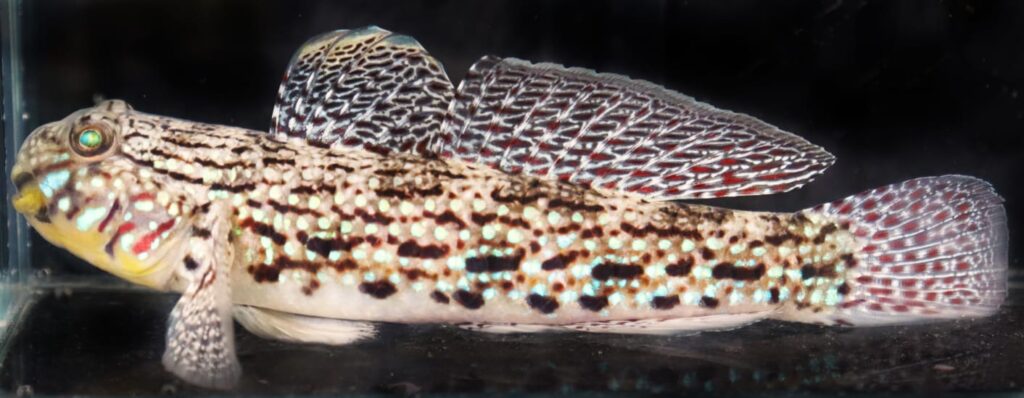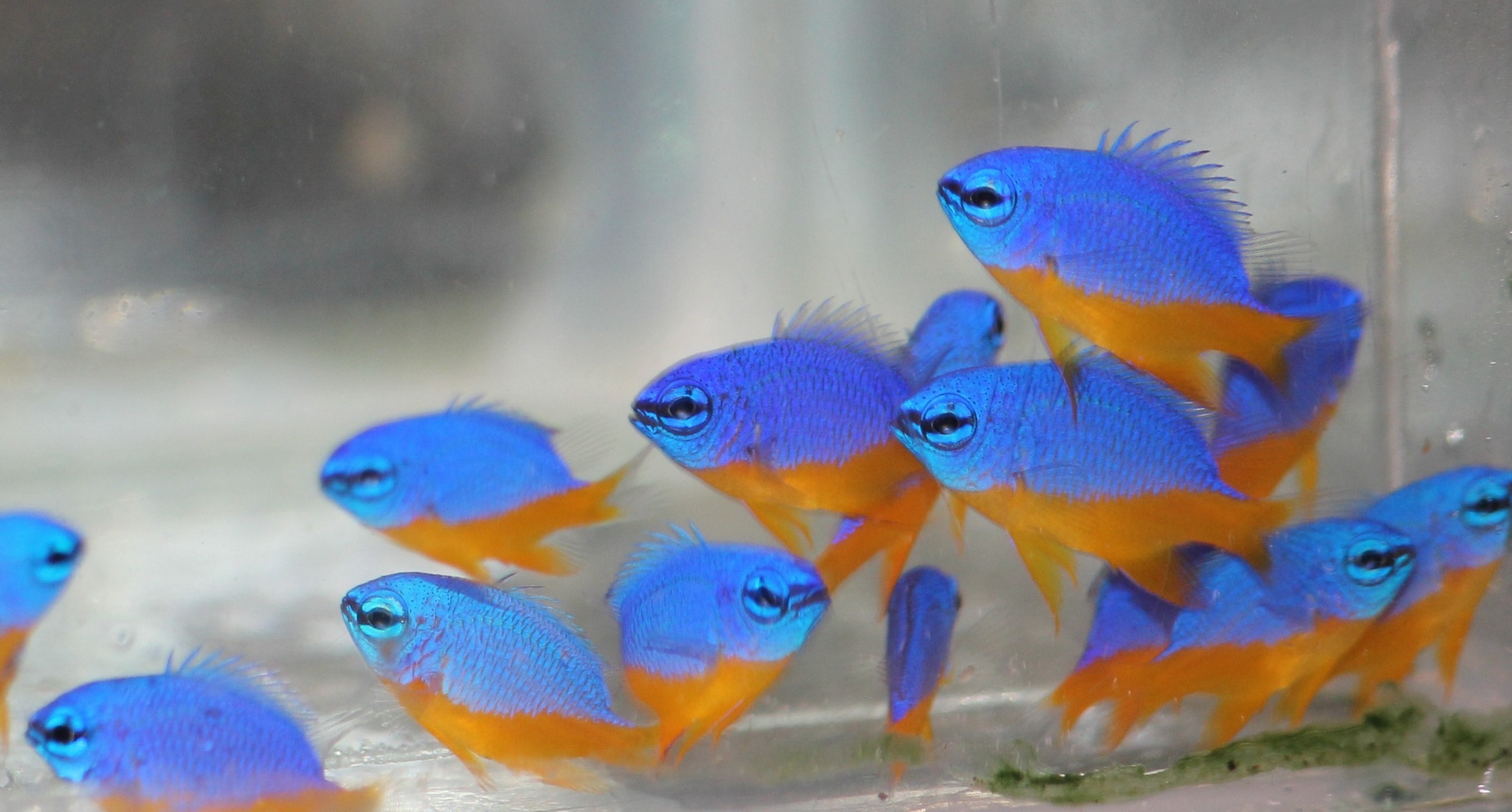Aquarium business will get a major boost as CMFRI’s breeding technologies for marine beauty queens—Azure damsel and Ornate goby—are open for entrepreneurs
Kochi: In a significant boost to India’s aquarium business, the ICAR-Central Marine Fisheries Research Institute (CMFRI) has made a breakthrough achievement in captive breeding of two high-value marine ornamental fishes, Azure damsel and Ornate goby.
Scientists of Vizhinjam Regional Centre of the institute successfully developed and standardised seed production technologies for these highly sought-after marine ornamental fish species, opening up a bright prospect for marine ornamental fish aquaculture and allied enterprises.
Beauty queens from the deep blue sea
Both species are desirable with their beauty, vibrant colours, and captivating aquarium behaviour. Azure damsel is a reef-associated fish with bright blue and deep yellow colours. This is over-exploited from its natural habitat, which is now considered under the vulnerable (VU) category. The current market value of this fish in India is around ₹350/fish, and theinternational market rate is $15-25/fish.
Ornate goby, a popular variety in marine aquariums, captivates with its alluring colours, ornated patterns, and curious behaviour. Its striking pectoral fins, adorned with five vertical rows of white dots, further enhance its visual appeal. This hardy species is a valuable asset to marine aquaria, as it plays a key role in cleaning sand and maintaining a pristine tank environment. Its peaceful nature and compatibility with other species make it an ideal choice for community tanks, where it can thrive without causing disturbances or posing threats to tank mates. A marketable-sized (5-8 cm) fish costs around Rs. 250 in India, while online retail trade price in international markets is $15 to 30.
On the significance of the achievement, Head of Vizhinjam Regional Centre of CMFRIDr B Santhoshsaid the development would unfoldnew avenues for sustainable production of these, reducing pressure on wild populations and contributing to the conservation of delicate coral reef ecosystems.
He said that these technologies are now available for dissemination to potential entrepreneurs for commercial-scale production.“Any aquarist or fish farmer can easilyadopt the seed production techniques of these high value marine ornamental fishes species by simply adopting theprotocol developed by CMFRI”, he said.
Economic scope
The high demand and market value of these fishes, coupled with the relatively low cost of production, make it an attractive venture for aspiring entrepreneurs.The economic feasibility study proved that a medium-scale seed production unit with an annual production of 24000 juvenileswould fetch an annual income of around Rs 12 lakh, Dr Santhosh said.






